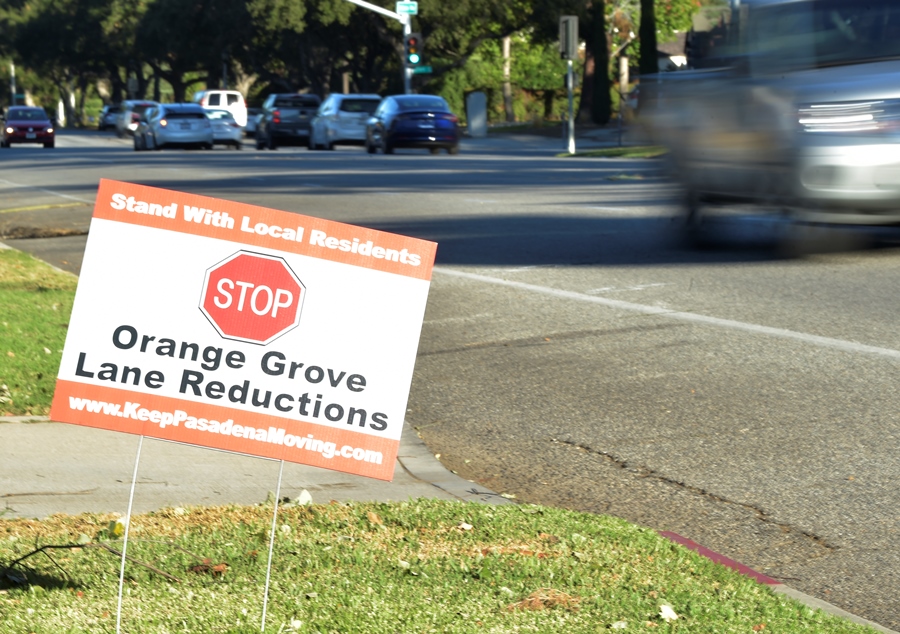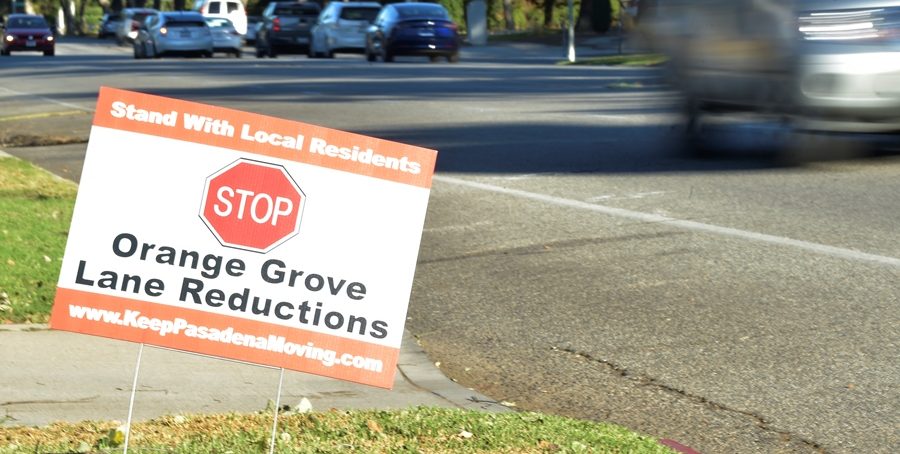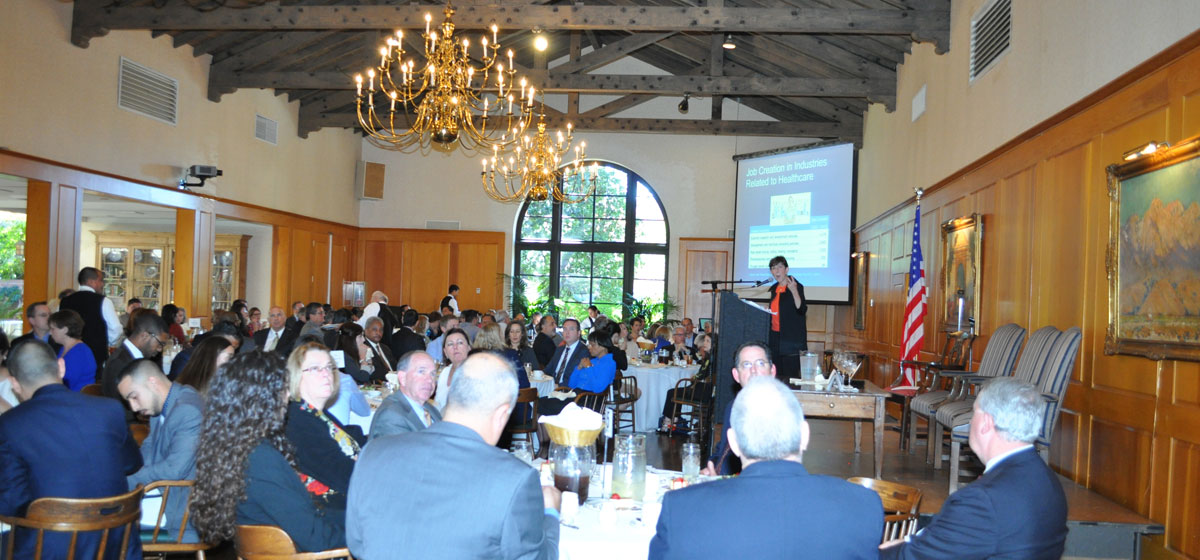
By Gus Herrera
There are many popular diets out there today, but there’s one particular diet that many Pasadena residents could not wait to abandon: the infamous “Road Diet.”
At their latest regular meeting, the Pasadena City Council gave the people what they wanted and unanimously approved City Manager Steve Mermell’s recommendation to remove the project from the capital improvement program (CIP).
Officially named the Orange Grove Complete Streets Project, Pasadena’s highly-unpopular Road Diet was originally adopted into the “future projects list” of the CIP in FY2012 as an offspring of the general plan mobility element, which aims to promote multi-modal transportation and pedestrian/cyclist safety throughout the city.
The project, which was unfunded but estimated to cost $2.3 million, according to Mermell, would have converted a 1.8-mile stretch of Orange Grove Boulevard (between Allen Avenue and Sierra Madre Villa Avenue) from a vehicular-oriented setup, to a “complete street.”
Proposed changes would have included the elimination of two vehicular traffic lanes (one in each direction) – a change the city hoped would help “manage vehicle speeds, enhance pedestrian crossings, and provide space for bicycles,” per staff’s report.
In place of the two vehicular lanes, the Road Diet would have installed a bike lane in each direction and a central turn lane/median at intersections. Some curbs would have also been extended at the intersections, in an effort to shorten the crossing distances for pedestrians.
When the department of transportation began to conduct public outreach efforts, the backlash came fast and furious – backlash which boiled over at a highly-contentious community meeting held at the PCC community center on March 22.
According to city staff’s report, “a significant number” of residents “voiced concern about the proposed reconfiguration, many of whom live adjacent to the Orange Grove corridor.”
Residents feared that the proposed changes to Orange Grove, which serves as one of Pasadena’s most prominent arterial east-west corridors, would spread congestion to the adjacent neighborhoods and effectively increase travel times for the city’s commuters, a point echoed by Council Member Victor Gordo, who requested that the matter be placed on the agenda during council’s Sept. 17 meeting.
“I do think that reshaping a segment of our city in the way that this proposal sought has many unintended but foreseeable consequences,” said Gordo, “I believe that traffic is like water and will find the path of least resistance … it’s very foreseeable that the traffic we displace from Orange Grove will find its way to the surrounding neighborhoods and we can’t allow that to happen.”
In addition to disagreeing with the merits of the proposed changes, the District 5 council member also took issue with the overall process, specifically the prominent sentiment amongst residents that communication was not as effective and transparent as it should have been.
“People didn’t feel listened to,” continued Gordo, “people in our community felt, no pun intended, ‘run over’ by this … [It’s] the quickest way for our constituents to collectively lose trust in our local government.”
Council Members Andy Wilson and Tyron Hampton were also concerned with the overall process and questioned whether the city was setting itself up for similar fiascos as the mobility element is applied to other Pasadena streets in the future.
“I’m concerned about what this means for the general plan process,” said Wilson, “are we going to be having the same conversation when we’re going to be looking at the next bike segment?”
Wilson’s inquiry was met with a resounding, “yes!” from the audience, which included dozens of members from the group Keep Pasadena Moving. The grassroots group also submitted a petition in opposition to the Road Diet that was signed by close to 1,500 residents for the public record.
“If that whole planning effort is flawed … then this is the time to figure that out,” said Wilson.
Mermell admitted that the city “didn’t have enough lead time” and “didn’t do enough ground work” for this particular project, but assured council that would not be case with future projects.
Mermell also cited the fact that many residents do not become involved in the city’s processes until projects directly affect them.
“When it comes down to a particular project on your street, by your home, that’s what brings people out,” said Mermell, “oftentimes people aren’t engaged until it becomes real for them. We need to find a way to bring people into our process.”
“I think we over-reached here,” concluded Mayor Terry Tornek, “the reason that the manager is pulling the plug on this … is because this proposal was not managed correctly from the start … those of you that have lost faith in city government as a result of this process, I apologize and I hope that you’ll reconsider and give us another chance.”







